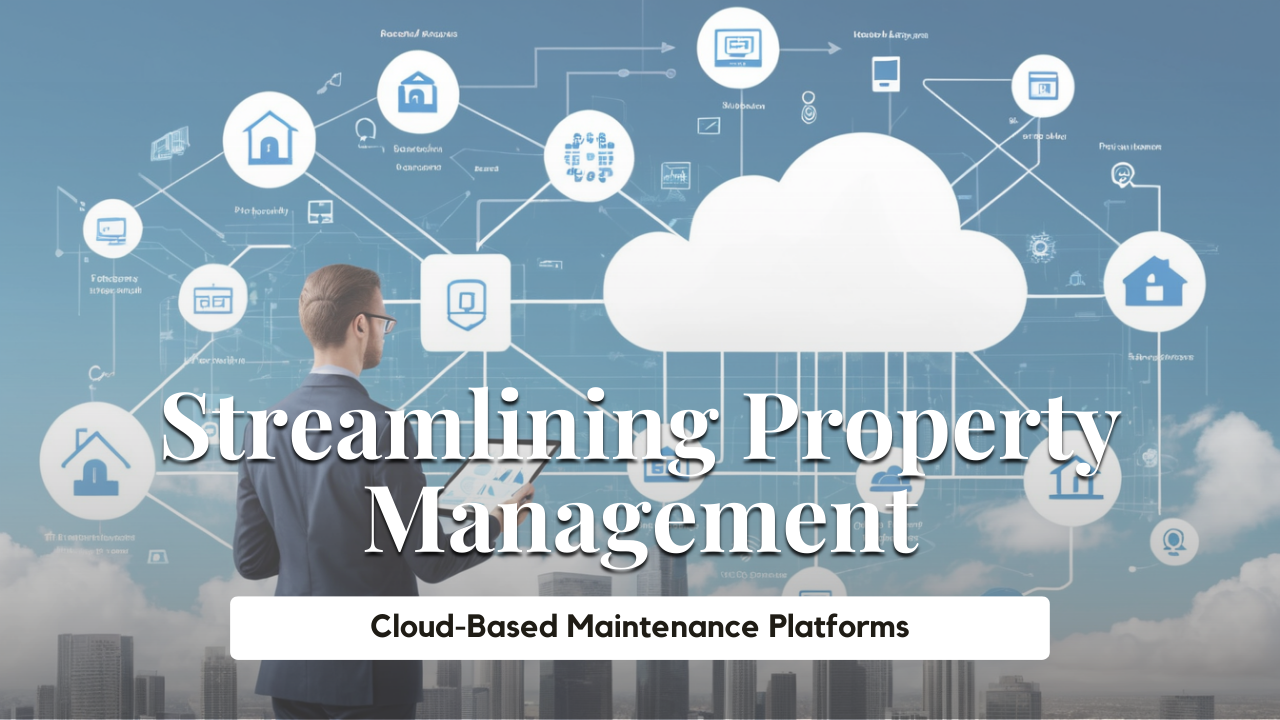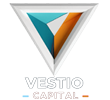Exercitation ullamco laboris nis aliquip sed conseqrure dolorn repreh deris ptate velit ecepteur duis.
Streamlining Property Management with Cloud-Based Maintenance Platforms
-
Vestio Capital > Education > Multifamily Apartments Investing Education > Streamlining Property Management with Cloud-Based Maintenance Platforms

The property management industry is experiencing a technology-driven transformation, with cloud-based maintenance platforms at the forefront of this shift. These platforms simplify maintenance workflows, enhance communication, and provide data-driven insights for continuous improvement, all of which contribute to improved tenant satisfaction and more efficient property management. For property managers, cloud-based platforms can reduce operational complexity, helping to organize maintenance tasks in one centralized, accessible system. In this article, we explore how cloud-based maintenance platforms are transforming property management through their ability to streamline workflows, facilitate real-time tracking, enable clear communication, and enhance data-based decision-making.
Simplifying Maintenance Workflows
Traditionally, managing maintenance requests has been a time-consuming process involving manual communication channels such as phone calls, emails, and paper-based records. These traditional methods are prone to miscommunication, delays, and a lack of accountability. Cloud-based maintenance platforms resolve these issues by consolidating all maintenance workflows into one user-friendly system accessible to both tenants and property managers. Tenants can quickly submit service requests online, eliminating the need for physical visits or long wait times on the phone.
From the property manager’s perspective, each maintenance request is automatically logged into the system, assigned to a specific staff member, and tracked until completion. This streamlined approach enables property managers to prioritize urgent issues and ensure each request is handled in a timely manner. By using a centralized platform, property managers can also monitor team performance and task completion rates, helping them identify potential areas for process improvement.
Real-Time Tracking and Updates
Real-time tracking is a defining feature of cloud-based maintenance platforms. It gives property managers a clear overview of all ongoing and completed maintenance tasks, helping them better manage resources and handle emergencies as they arise. Each task’s status is updated instantly, so managers can monitor the progress of repairs, view who is assigned to each task, and determine which repairs need immediate attention.
Tenants also benefit from real-time tracking. When a tenant submits a maintenance request, they can log into the platform at any time to check the status of their request, see who is handling it, and view estimated completion times. This transparency improves tenant satisfaction by keeping them informed and involved in the maintenance process. For example, if a tenant requests a repair for a broken heater, they can see exactly when it was assigned, when the technician is scheduled to arrive, and when the issue is expected to be resolved. This level of communication fosters a sense of trust between tenants and property managers, as tenants can rely on timely updates and clear communication.
Enhanced Communication for Better Tenant Relations
 Clear, open communication is critical for building positive relationships with tenants. Cloud-based maintenance platforms make it easier for property managers to keep tenants informed and address their concerns promptly. Instead of relying on separate communication channels for each maintenance request, tenants and property managers can interact directly within the platform. Tenants can ask questions, leave comments, or update their requests, and property managers can respond in real-time, creating a single, organized channel for all maintenance-related communication.
Clear, open communication is critical for building positive relationships with tenants. Cloud-based maintenance platforms make it easier for property managers to keep tenants informed and address their concerns promptly. Instead of relying on separate communication channels for each maintenance request, tenants and property managers can interact directly within the platform. Tenants can ask questions, leave comments, or update their requests, and property managers can respond in real-time, creating a single, organized channel for all maintenance-related communication.
Moreover, property managers can use these platforms to send notifications and reminders about upcoming repairs, inspections, or maintenance schedules. For instance, tenants can receive advance notice if water will be temporarily shut off for maintenance, or if an elevator repair will affect service for a certain period. This proactive communication helps tenants feel respected and valued, as they are kept informed of any potential inconveniences.
Data-Driven Insights for Continuous Improvement
One of the most significant advantages of cloud-based maintenance platforms is their ability to collect and analyze data, providing property managers with actionable insights to improve operations. By tracking maintenance requests and resolutions, property managers can identify patterns, recurring issues, and areas of improvement. This data-driven approach allows managers to take preventive action, ultimately saving time and money in the long run.
For example, if a particular property has a high number of plumbing requests, managers can investigate whether there is an underlying issue with the plumbing infrastructure and make targeted upgrades to prevent future problems. Data analysis can also reveal seasonal trends, helping managers prepare for increased maintenance demands during specific times of the year. Furthermore, some platforms include analytical tools that allow property managers to measure key performance indicators (KPIs), such as average response time, repair completion rates, and tenant satisfaction levels. These metrics enable managers to continually assess and enhance their maintenance processes, ensuring they meet high standards of efficiency and tenant service.
Cost Efficiency and Improved Resource Management
Implementing a cloud-based maintenance platform also leads to significant cost savings and improved resource management. By automating workflows and reducing response times, these platforms help property managers minimize inefficiencies and allocate resources more effectively. The streamlined communication process reduces the need for excessive back-and-forth, cutting down on time spent resolving misunderstandings and coordinating repairs.
In addition, cloud-based platforms often feature vendor management capabilities, allowing property managers to track and manage third-party maintenance providers. This enables managers to keep records of vendor performance, invoices, and service histories, ensuring they work with reliable vendors while also controlling costs. Moreover, property managers can plan and schedule regular maintenance tasks within the platform, reducing the likelihood of costly emergency repairs due to neglected maintenance.
The centralized nature of cloud-based platforms also allows managers to track expenses related to specific maintenance tasks, such as parts and labor, providing a clear picture of maintenance costs. This data can inform budget planning and decision-making, ultimately contributing to cost-effective property management.
Enhancing Tenant Satisfaction and Retention
In today’s competitive property management landscape, tenant satisfaction is crucial for long-term success. Tenants expect timely, reliable maintenance services, and a cloud-based platform helps property managers meet and exceed these expectations. The transparency, convenience, and efficiency offered by these platforms foster a positive tenant experience, which in turn enhances tenant loyalty and retention.
For instance, tenants who experience quick and effective maintenance resolutions are more likely to feel satisfied with their living environment and renew their leases. In addition, a well-maintained property with efficient repair processes reflects positively on property management’s overall reputation, which can attract new tenants and improve occupancy rates.
Preparing for the Future with Cloud-Based Solutions
As property management technology continues to evolve, cloud-based maintenance platforms represent a crucial investment for property managers looking to stay competitive. The flexibility of cloud-based systems allows managers to scale operations and adapt to changing needs, whether managing a single property or a large portfolio. Moreover, as sustainability becomes a growing priority, cloud-based platforms that track resource usage can help property managers reduce waste, conserve energy, and support eco-friendly practices in building maintenance.
By integrating cloud-based solutions into their workflows, property managers position themselves to handle future challenges more effectively. These platforms not only streamline current operations but also provide the infrastructure needed for future expansion, whether through adding smart home integrations, predictive maintenance tools, or artificial intelligence-based analytics.
Conclusion
Cloud-based maintenance platforms are revolutionizing property management by streamlining workflows, enhancing communication, providing valuable data insights, and improving tenant satisfaction. By adopting these platforms, property managers can operate more efficiently, reduce operational costs, and foster positive tenant relationships. In a fast-evolving real estate market, investing in cloud-based technology is an essential step for property managers who aim to meet tenants’ expectations and create a well-managed, thriving living environment.

